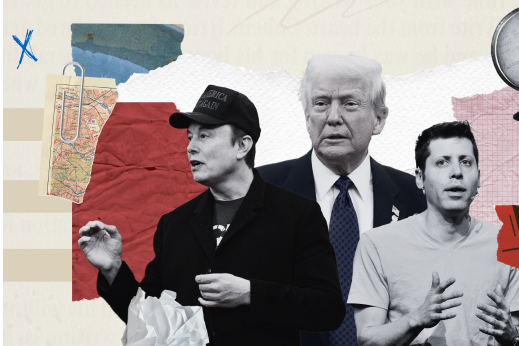
For years the debate around artificial intelligence has been dominated by two extremes: the “doomers” who fear that unfettered advancement of the technology will lead to a catastrophic robot apocalypse, and the accelerationists, who argue that AI will ultimately unlock a utopian future, so it must be developed at all costs.
Governments have attempted to walk a tightrope between the two groups, supporting technological advancements while putting up guardrails in the hopes of curtailing the threats posed by AI and preventing a doomsday scenario.
Last year, the European Union enacted the world’s most restrictive AI regulations. In the U.S., former President Biden created the U.S. AI Safety Institute and put forth a set of voluntary guidelines that major companies like OpenAI and Apple agreed to follow. Several states passed their own AI laws, though California Gov. Gavin Newsom vetoed a bill that would’ve made AI companies liable for serious harm caused by their programs.
But with a new resident in the White House and the release of DeepSeek – a cheap, efficient Chinese model that has alarmed many in the industry – the global tides seem to have changed. Governments now appear to be ditching their caution in fear of being left behind.
On the campaign trail, President Trump called for an end to the Biden-era AI safety regulations in favor of AI "Manhattan Projects.” During his first week in office, he signed two executive orders: one repealed Biden’s AI executive order and the other vaguely called for the removal of “barriers to American leadership” in AI.
During the Paris AI summit last week, Vice President J.D. Vance reiterated the current administration’s views on the direction of AI.
“Now, at this moment, we face the extraordinary prospect of a new industrial revolution, one on par with the invention of the steam engine or Bessemer steel,” Vance told a crowd of tech executives and foreign lawmakers. “But it will never come to pass if overregulation deters innovators from taking the risks necessary to advance the ball.”
French President Emmanuel Macron has urged his European peers to cut red tape, invest in AI startups, and simplify regulations to push the technology forward.
While the EU’s AI Act is still on the books, the economic bloc has already started rolling back some of its planned regulations, including the AI Liability Directive, which would have made it easier for consumers to sue companies that employ AI software. In lieu of more regulation, the bloc is planning a 200 billion euro investment in AI.
The accelerationists have won this round – along with AI investors.
—Philip Athey

The AI White House:
Top White House takeaways:
- President Trump’s aggressive and erratic stance on tariffs has caused hand-wringing among some tech companies.
- The White House has called for mass deregulation of AI, a view that seems to be catching on outside of the country.
- The heads of the biggest tech companies are continuing to ingratiate themselves to a president with a history of using his power to benefit friends and hurt perceived enemies.
The inside story of how Altman and Musk went from friends to bitter enemies: Once allies in founding OpenAI, Sam Altman and Elon Musk are now bitter rivals, clashing over AI dominance and political influence. (Wall Street Journal)

